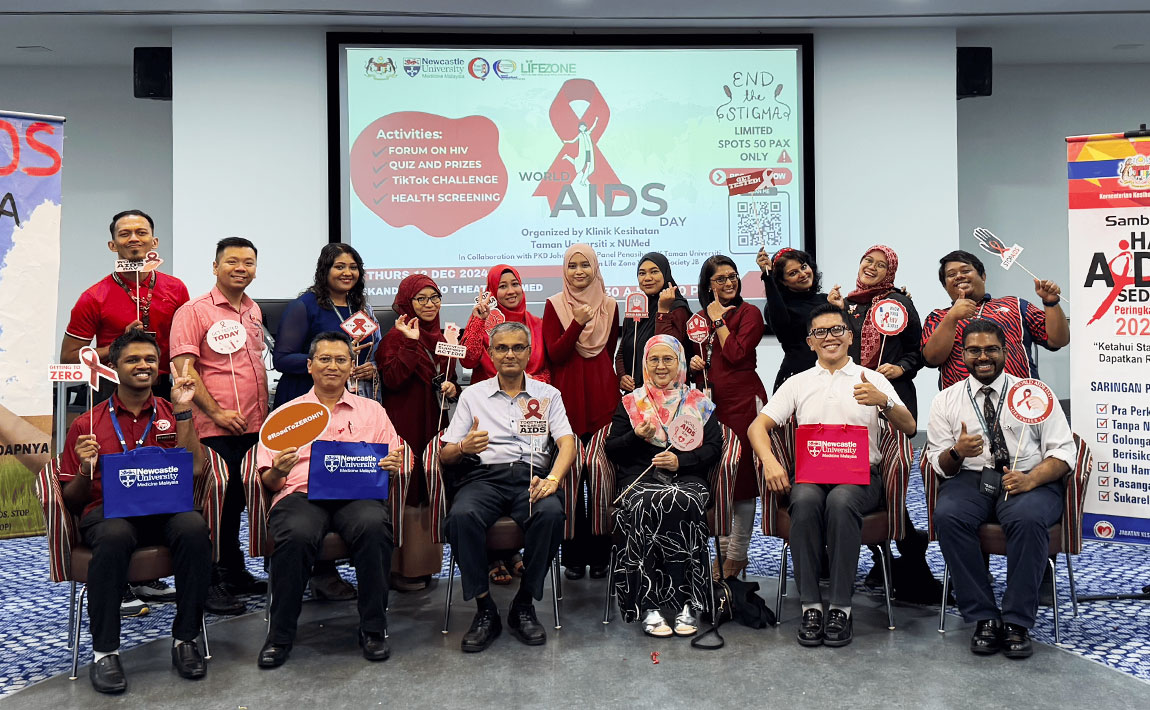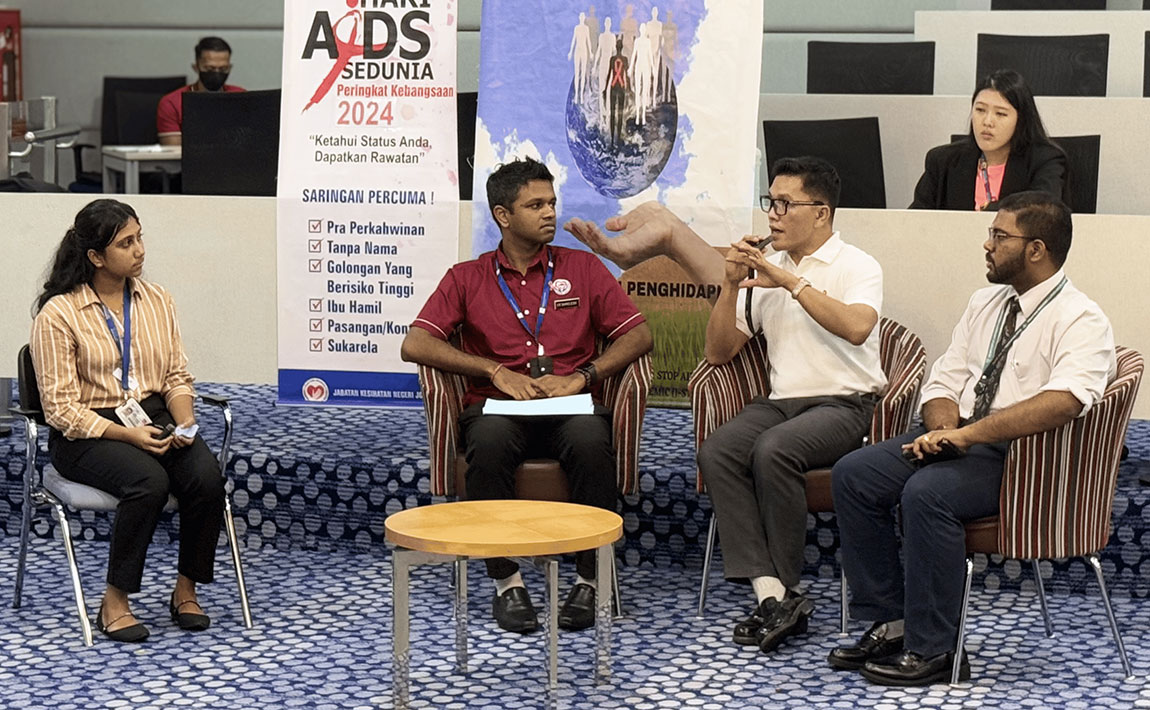Foundation Students Dive into Conservation on NUMed’s Successful Mangrove Field Trip
Recently, Foundation students from Newcastle University Medicine Malaysia (NUMed) embarked on an inspiring Mangrove Field Trip to Eco-Tourism Kampung Sungai Melayu, a fishing village in Gelang Patah.
6 October 2024
Amidst the lush greenery and whispering tides of Gelang Patah, a hidden world unfolds—a rich mangrove ecosystem brimming with life. Recently, Foundation students from Newcastle University Medicine Malaysia (NUMed) set off on an inspiring Mangrove Field Trip to Eco-Tourism Kampung Sungai Melayu, a fishing village in Gelang Patah. This enriching experience provided students with a unique opportunity to explore the beauty and significance of the mangrove ecosystem while educating them about its biodiversity and ecological functions, igniting a fervour for conservation that transcends classroom walls.
A group of 28 Foundation in Science (FIS) students, along with 7 dedicated staff members—including 2 First Aiders—embarked on this educational adventure. One of the trip’s main objectives was to introduce participants to various forms of biodiversity that differ from what they might be familiar with in their homelands. The trip also aimed to foster collaboration with the local community by observing the lifestyles of local fishermen, including their methods for growing mussels and catching crabs and prawns.

Participants enjoyed a captivating boat cruise through the tranquil mangrove swamps, where they observed diverse wildlife, deepening their understanding of the mangrove ecosystem’s vital ecological roles. The activities included a visit to a floating mussel farm, where students had the chance to taste fresh raw mussels, enhancing their connection to local marine practices and sustainable aquaculture.
“This field trip provided an invaluable hands-on experience that deepened our understanding of the mangrove ecosystem,” shared Nurul Atiah Iylia, NUMed Foundation lecturer. “It was eye-opening to witness the beauty of nature firsthand and to grasp the importance of conserving such environments, especially in areas facing rapid development.”

The event was designed to emphasise the importance of maintaining a balanced study life and preventing burnout while enhancing critical thinking skills through real-world experiences. It also aimed to inspire students to take the initiative in organising future conservation efforts and to raise awareness about the vulnerabilities of mangrove ecosystems to environmental pollution.
The organising chairperson and Foundation student, Tan Yi Thong, noted some challenges leading up to the trip. “The main obstacles were the weather, as we faced potential storms, and transportation arrangements. Thankfully, we had two volunteers step up as First Aiders. Overall, we are very satisfied with how this field trip turned out, and we are glad to have provided a great experience for everyone who attended.
The Mangrove Field Trip reflects NUMed’s commitment to community engagement and environmental sustainability, building on previous initiatives such as beach clean-ups. Nurul Atiah Iylia added, “Opportunities like this are rare, and I thank the team for providing such experiences to everyone. I hope we will continue this legacy with fun and exciting activities in the future.”
Looking ahead, the Foundation department plans to encourage more projects that connect students with the community and nature, using this trip as a stepping stone for future collaborations with local communities in sustainable and eco-tourism initiatives.
